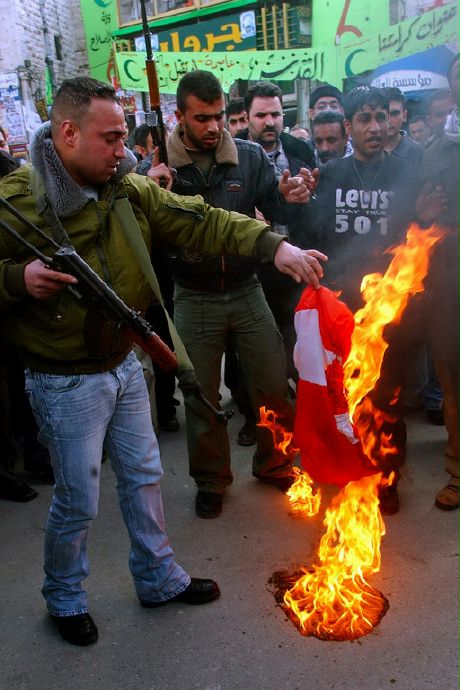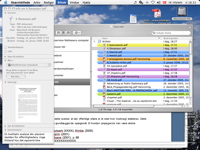I have written a number of entries on the foreign policy behaviour of the Iranian president Ahmedinejad. See
What is President Ahmedinejad doing? A sketch for analysis,
Doomsday Scenario and
Loco, the Kim Jong-Il way.
Now the good people at
Stratfor finally speak out on the issue and they outline four possibilities for Ahmedinejads antics:
1. Mahmoud Ahmadinejad, the Iranian president, is insane and wants to be attacked because of a bad childhood.
2. The Iranians are engaged in a complex diplomatic maneuver, and this is part of it.
3. The Iranians think they can get nuclear weapons -- and a deterrent to Israel -- before the Israelis attack.
4. The Iranians, actually and rationally, would welcome an Israeli -- or for that matter, American -- air strike.
They dismiss the first one right away. But writes with insight:
"In foreign policy, it is sometimes useful to appear to be insane, as it is in poker: The less predictable you are, the more power you have -- and insanity is a great tool of unpredictability. Some leaders cultivate an aura of insanity."
They go on to stress one of their pet-observations, how the US has utilized the Sunni-Shia split to their advantage in Iraq. Furthermore they observe how the once banner-holder of islamic revolution has compromised in order to survive and how sees itself flanked by Al-Qaeda, which is Sunni and thus not trusted by Iran.
Ahmedinejad's statements on anti-zionism serves two purposes:
"First, he established himself as intellectually both anti-Israeli and anti-Jewish, taking the far flank among Islamic leaders; and second, he signaled a massive breach with Khatami's approach."
Khatami tried to divide the West by splitting US and Europe, making the problem of Iran one between those two. But this dealing with mainly the Europeans lost them edge in the islamic world. Ahmedinejad put an end to that with his statements, Germany and France pulled the plug and Iranian popularity on the Arabic street rose.
The nuclear issues was the next step. It had several symbolic meanings:
1. Iran's policy of accommodation with the West was over.
2. Iran intended to get a nuclear weapon in order to become the only real challenge to Israel and, not incidentally, a regional power that Sunni states would have to deal with.
3. Iran was prepared to take risks that no other Muslim actor was prepared to take. Al Qaeda was a piker.
However the real chances of getting a nuclear weapons system are slim. Thus the approach is in essence very much a move to get more leverage in the islamic world, especially with sunnis as well.
Now, the question that still stands with me is: how about Ahmedinejad's stance on the West then? Are they completely disregarding the west or are they moving in position for increased influence? The last one is the most likely in my view and in the years to come it will be interesting to see if not Ahmedinejad uses his new position to make an unprecedented breakthrough, Ariel Sharon-style.






